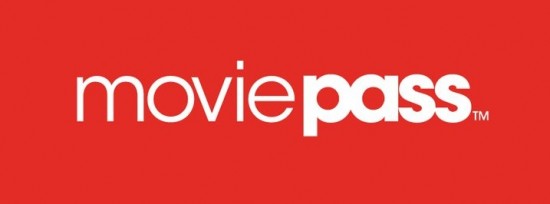By Mohit Puvvala, lifestyle columnist
The rise of subscription streaming caused a drop in movie theatre attendance with 2017 having the lowest theater attendance in 25 years. Since 2002, the box office has generally been on the decline (there were small upticks in 2009, 2012 and 2015 correlating with blockbuster films such as “Avatar,” “The Avengers” and “Star Wars: The Force Awakens,” respectively).
As movie ticket prices increased, people tended to attend movies unless they were big blockbusters, which can often cost a lot of money to produce. If only there was a way for viewers to pay a monthly fee like Netflix and have access to theaters…
Enter MoviePass. The company was founded in 2011 with that exact premise. It was a gamble, but the team headed by CEO Mitch Lowe believed they could pull it off. In August 2017, they made the wild decision to offer one movie a day for the low cost of $9.95 a month. Like many other frequent moviegoers, this was a no-brainer deal for me, and I signed up instantly. Within days, I became a heavy user since the closest theater, Regal Fenway Stadium 13, was only a 10-minute walk from my dorm room.
It doesn’t take a business student to figure out that it’s kind of a dumb business model. The average ticket at that theater was around $12.50 for a regular show and $5 more for 3D or IMAX. If I wanted a premium format, I would have to pay $5 extra out of my pocket. Even if I just watched one movie a month, that would still mean I’ve gotten my money back. What exactly was Lowe, a former executive at Netflix nonetheless, thinking, and how were they making money?
Apparently, the company’s owner, Helios and Matheson (HMNY), is a data analytics company, which means that MoviePass was selling its users’ movie data to movie companies like Warner Bros. and 20th Century Fox. Though HMNY was selling valuable user data, the company struggled to get anywhere close to breaking even as it kept piling on debt. An SEC filing back in April showed that the company was burning through over $21 million per month, but Lowe continued to focus on the positives of maintaining the theater going experience and future plans with growing the user base.
I’ll give it to him, the man is great with marketing and knows how to spin information to his advantage. Lowe has stated that the company’s business model depends on the prospect that most users only see one or two movies a month. The model is supposed to work like that of a gym in that a gym’s best customer is someone who barely goes. However, free movies are something that everyone can get behind, and even the less frequent moviegoers are likely going to ramp up their watching habits as soon as they subscribe to MoviePass.
With this model, it wasn’t long before the company ran out of funds at the end of July. To combat this, MoviePass started adding premium costs to all tickets, sometimes up to $8 per movie. There were some other missteps, like how MoviePass tried to pull a Netflix and produce their own films. The only problem is that while “American Animals” was generally well received at 89 percent on Rotten Tomatoes, “Gotti” was arguably the worst movie of the year with a whopping 0 percent on Rotten Tomatoes. To top that off, as Dan Murrell of Screen Junkies put it, the company spread fake user reviews of the film to fight off critics.
Stock crashed for the umpteenth time, and MoviePass seemed sure to die off completely. Now, MoviePass is fighting with its last limb by continuing to produce movies and reform its model to be more user friendly, but the damage has already been done. The company still exists, but it’s probably not going to stay for long because of one major game changer: AMC.
Right around the time MoviePass started to really fall in June and July, AMC released AMC Stubs A-List, a $19.95 monthly subscription that basically gives you the exact same thing as MoviePass except with three movies a week, any premium format for no extra cost, and a fast-lane experience where you skip the lines.
At first, when this project rolled out, I wasn’t that excited since it’s $10 more, fewer movies on a weekly basis, and can only be used at AMC theaters, but then MoviePass got destroyed and suddenly everyone moved to A-List. Stubs A-List garnered 175,000 members in its first five weeks, shifting all eyes to AMC. I’ve personally noticed a lot of my friends in Boston shift to it. This was clearly a better deal even if it meant $10 more a month. Plus, AMC isn’t a third party in this whole movie business — they were the real deal, the ones who strike deals with production companies. The irony of the whole thing is that AMC was a notable enemy of MoviePass, and in the end they took the novel idea and turned it into something sustainable… right?
That’s the question — how is AMC going to succeed where MoviePass failed? After all, if Stubs A-List is going to fail, why would I recommend movie-going students to use it? Here’s what I think: As we now know, attendance has generally been on the decline since 2002, mainly because of rising ticket costs. If fewer people buy tickets, production companies make less money. A-List will increase attendance if people subscribe, which will benefit these production companies. However, AMC is the one paying for these tickets, so in theory, A-List could take away a lot of AMC’s money.
While there’s no way to tell for sure without watching user habits for the next few months, I think there’s little room for error here because it seems like it’s a win-win for AMC. If people go to theaters more, AMC makes more money off of concessions, and if people don’t go, AMC takes advantage of the gym model we talked about before. Moreover, the company is in a position as one of the largest theater chains to strike deals with big production companies for tickets sold through A-List, and A-List only makes them more money since it can only be used in AMC theaters. As a student who loves going to the theaters but doesn’t want to spend all my money on tickets, AMC Stubs A-List is probably the best theater subscription service we’ll get.




















